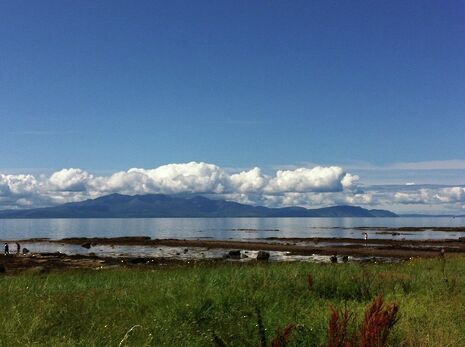Am I Scottish? A story from Cambridge
It’s referendum day and Charlotte Ivers wonders what it will mean for Scotland, the Scottish and the place she calls home

The Scottish independence question can feel a long way from Cambridge, conceptually just as much as geographically. Something for a room full of North Londoners to debate and dismiss at the Union, perhaps. But not a tangible part of our lives. Even the Scottish students in Cambridge have left their country behind for three years and are overwhelmingly likely to remain in the south of England for work once they have graduated.
And yet, it would take someone braver than me to accuse any Scottish student of being English, because Scottishness does not seem to be based on geographical location. Cambridge is full of Scots who have lived there for many years, but refuse to identify as anything but Glaswegian. And so we are left with the question. How do we tell if a person is Scottish?
For me, the question is more complex than for most. I was born in England. I was educated in England. I have an English accent. To any impartial observer, I am English.
However, my family live in a small town just outside of Glasgow. I have four sisters and a stepmother who are all indisputably Scottish. My father has an English accent, but has lived on the west coast of Scotland for as long as I can remember. When I talk about visiting them, I talk about going home.
Scotland is where my younger sister shook me awake on the morning of our first Christmas together. Where, as a child, I learned to ice skate. Where, as a teenager, I would rummage through my father’s bookshelf and realise that more than anything else I wanted to learn. It is where, three times a year, I walk away from my family through Glasgow Central Station with a lump in my throat, aware that once I sit down on the train I am an adult once more.
So much of who I am was formed against the grey, austere, beautiful backdrop of the Scottish west coast. So many of the people I love call it their home. And yet I am not sure that I fit any fixed definition of what it is to be Scottish. I wasn’t born there. My permanent address is not registered there.
But if there is one thing that has been made painfully clear by world history, both recent and less so, it is that nationality is not written in a document; it cannot and will not be defined by a central authority. It is a story that we tell ourselves, and that is told to us by others. This is perhaps the most important thing that we should hold in mind when we eventually take a step back and ask what happened on the day of the Scottish referendum.
This is not a vote which will be lost or won by facts. This is not about losing the pound, keeping the EU, trusting RBS or distrusting Alistair Darling. The battleground here is over something far more nebulous, far less tangible. This is about an ill-defined yet overwhelmingly powerful sense of belonging, of being part of something. For better or for worse, this is not found in the domain of fact and reason, but falls somewhere in the foggier region of personal relationships, childhood memories, cultural stories which took root many years ago, without anybody really noticing.
We see this in the powerful emotions evoked on both sides: the fury hurled at apparently biased BBC presenters, the protests on the streets of Edinburgh as Westminster politicians arrive. This type of response does not come from someone who has seen a cherished factual point disputed in a debate, but someone who has felt a direct challenge to their way of life, to their very sense of who they are.
The question which will be answered today is not whether it would be better for Scotland to stay or to go, but rather whether Scotland feels, on the most fundamental level, Scottish or British.
Personally, I have always felt that I am both. But it is indicative of the divisive and politicised nature of the campaigns on both sides that I have recently felt that I am neither. Whatever the outcome of the ballot, differences have been stirred up in Scotland that strike at the very heart of the country. All the polls suggest that the vote could go either way. But whatever the outcome, I think we can be sure that the country, my country, which wakes up on the morning of the 19th of September, will be a very different one to that which went to bed.
 News / Report suggests Cambridge the hardest place to get a first in the country23 January 2026
News / Report suggests Cambridge the hardest place to get a first in the country23 January 2026 Comment / Cambridge has already become complacent on class23 January 2026
Comment / Cambridge has already become complacent on class23 January 2026 Comment / Gardies and Harvey’s are not the first, and they won’t be the last23 January 2026
Comment / Gardies and Harvey’s are not the first, and they won’t be the last23 January 2026 News / Students condemn ‘insidious’ Israel trip23 January 2026
News / Students condemn ‘insidious’ Israel trip23 January 2026 News / Cambridge ranks in the top ten for every subject area in 202623 January 2026
News / Cambridge ranks in the top ten for every subject area in 202623 January 2026









